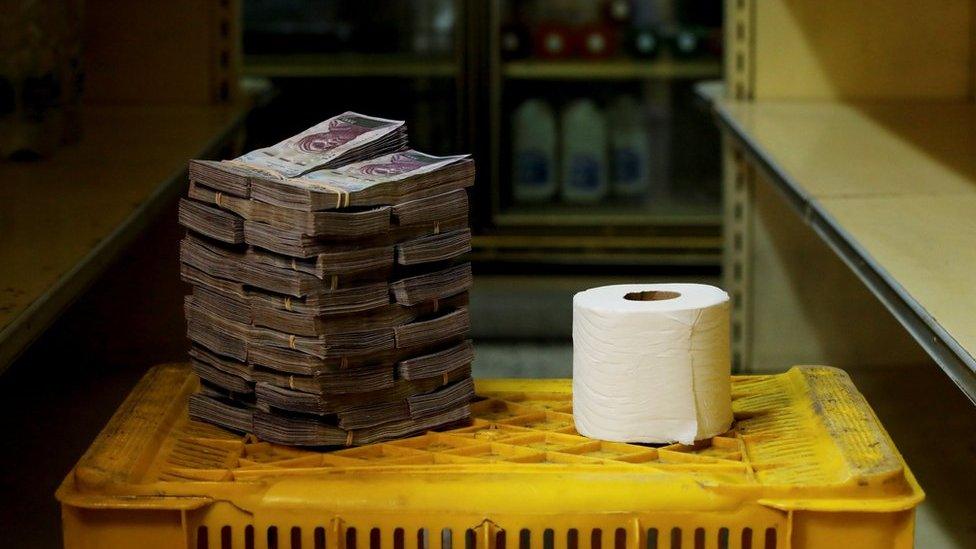Venezuela migration nears 'Mediterranean crisis point'
- Published
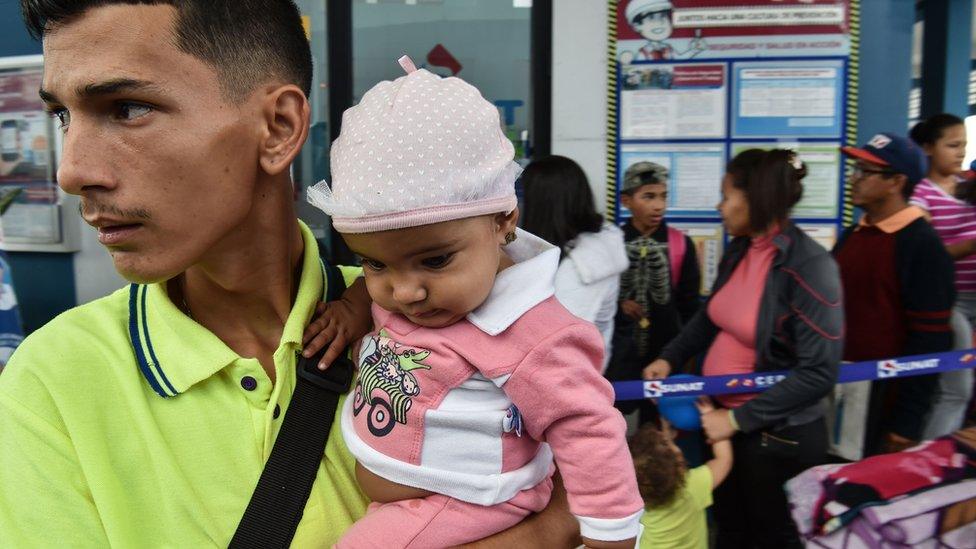
Thousands of Venezuelan migrants are queuing at the main Ecuador-Peru crossing point in Tumbes
The UN's migration agency says Venezuela is heading for the same refugee "crisis moment" seen in the Mediterranean in 2015.
The warning comes as its neighbours try to halt the movement of people fleeing Venezuela's economic crisis.
Peru brought in stricter border regulations on Saturday - a day after a court overturned Ecuador's attempt to strengthen its own controls.
More than two million Venezuelans have fled their country since 2014.
They are fleeing a dire economic situation, with Venezuelans facing shortages of food, medicine and basic goods.
Dash to the Peruvian border
Hundreds of Venezuelans were bussed through Ecuador to the Peruvian border before the midnight deadline on Friday.
Jonathan Zambrano, 18, who is at Tumbes on the border between Ecuador and Peru, told news agency AFP he had been on the road for five days along with many others.
More than 2,500 crossed into the small Peruvian border town of Aguas Verdes on Friday, with thousands more trying to reach Peru at the main crossing point at Tumbes.
The Tumbes crossing has seen about 3,000 arrivals per day in recent weeks.
Allow X content?
This article contains content provided by X. We ask for your permission before anything is loaded, as they may be using cookies and other technologies. You may want to read X’s cookie policy, external and privacy policy, external before accepting. To view this content choose ‘accept and continue’.

Peru is home to about 400,000 Venezuelan migrants, most of whom arrived in the past year, according to Peru's immigration agency.
The new rules coming into force on Saturday require them to have valid passports. Until now, Venezuelans have been allowed to enter Peru with just their ID cards.
Ecuador brought in a similar law last week. However, on Friday, a judge found requiring Venezuelans to carry valid passports broke regional agreements on freedom of movement.
The state of Roraima, in Brazil's Amazon region, also had its attempt to close the border thrown out by a judge earlier this month.
A hardening attitude towards Venezuelans seeking a new life could also be heard on the streets in Peru.


Giannella Jaramillo, who runs a clothes stall in a town near the border, told AFP: "On the one hand we're sorry for the Venezuelan people, but they are taking a job away from a Peruvian. It's hard to help more people."
Her words were echoed by Ecuadoran Gerardo Gutierrez.
"Walk two blocks and you see 10 Venezuelans, walk another two and you see 10 Venezuelans.
"In economically poor countries, it's hard to help more people with what little there is."
Peruvian Prime Minister César Villanueva has said requiring Venezuelans to show their passport at the border did not mean that Peru was "closing the door" on Venezuelan migrants.
He said ID cards did not provide enough information and could easily be forged.
Peruvian Foreign Minister Néstor Popolizio said Venezuelans could apply for visas in Peruvian consulates in Venezuela, Colombia, Ecuador or even at the border crossing in Tumbes.
Situation 'building to a crisis'
Joel Millman, a spokesman for the International Organization for Migration (IOM), said that all this - as well as recent violence at the border in Brazil - was an early warning sign that the region was in need of help.
"This is building to a crisis moment that we've seen in other parts of the world, particularly in the Mediterranean," he told reporters.
"A difficult situation can become a crisis situation very quickly and we have to be prepared," he added.
"This is the largest exodus Latin America has experienced" - UNHCR's Chiara Cardoletti
However, Chiara Cardoletti of the UN's refugee agency (UNHCR), said other countries in the region had welcomed Venezuelans and were helping to "avoid a situation like the one we have seen in Europe".
"What we are seeing is a continent that has opened its doors to people who are fleeing and who need support," she said.
Ms Cardoletti added that Colombia had registered more than 450,000 Venezuelans and given them regular status. The UN says more than 870,000 Venezuelans are in Colombia, many of them in vulnerable situations.
UN Secretary-General Antonio Guterres is to set up a special UN team to co-ordinate a regional response to the crisis, while Ecuador is to host a 13-nation regional summit in September.
- Published25 August 2018
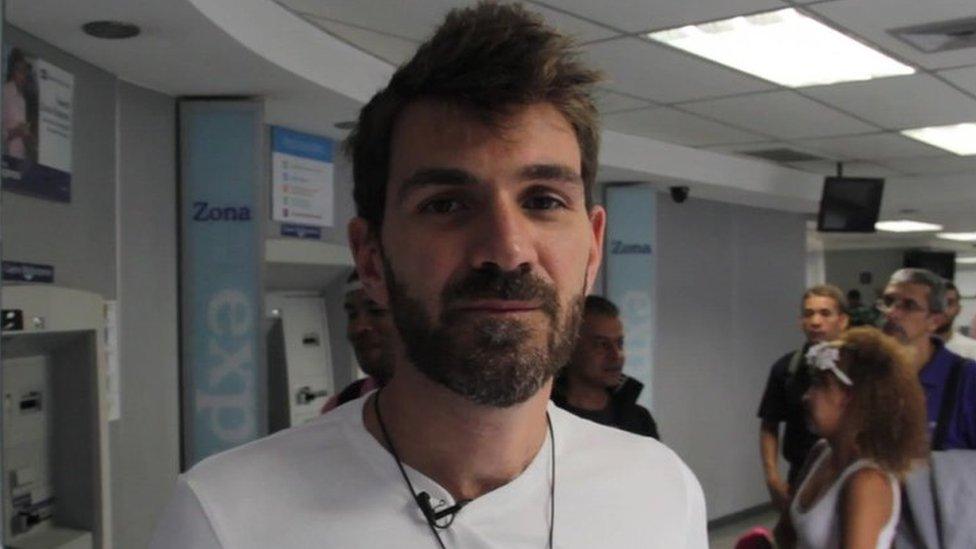
- Published22 August 2018
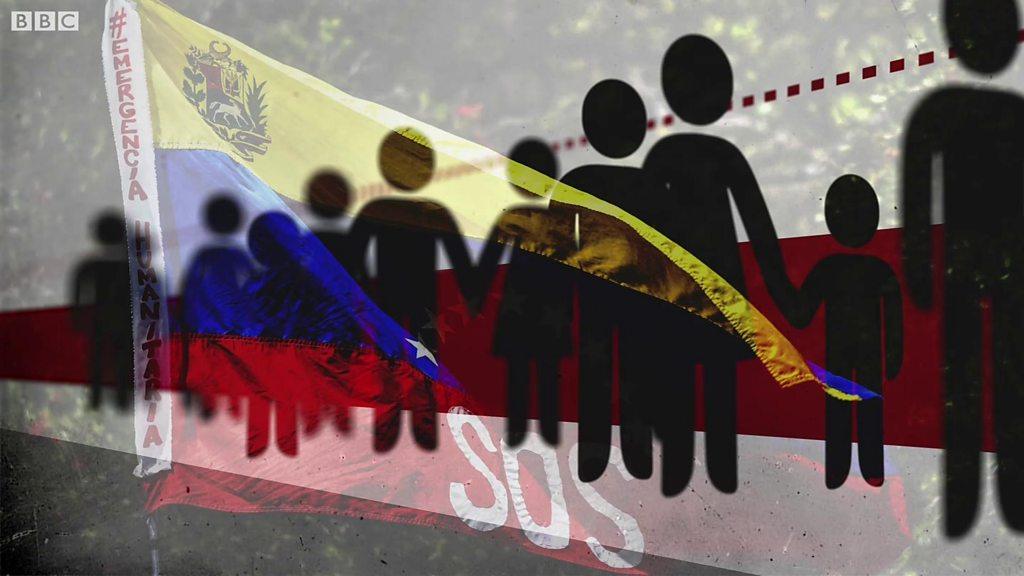
- Published23 August 2018
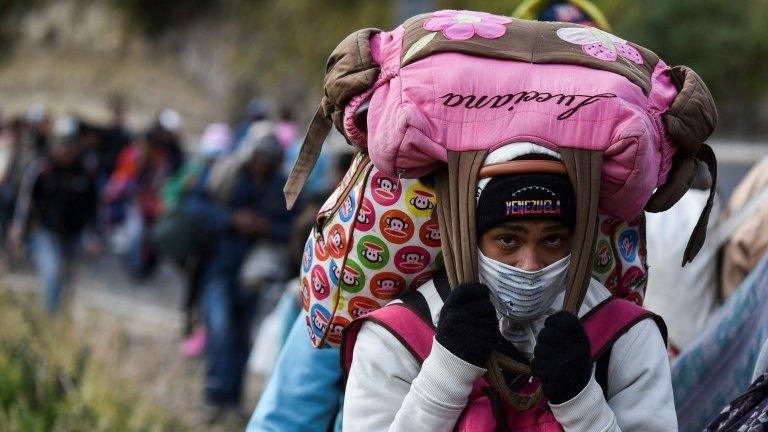
- Published22 August 2018
- Published22 June 2018
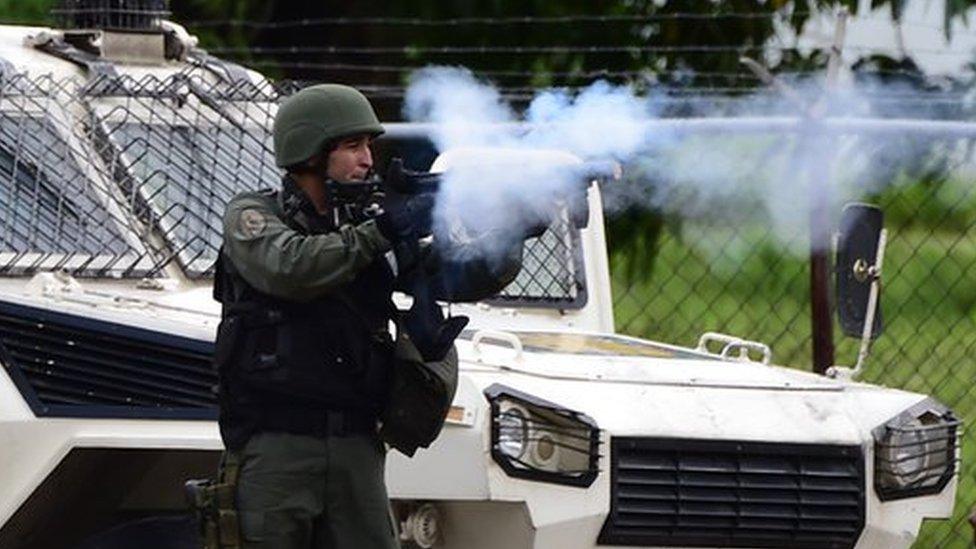
- Published21 August 2018

- Published20 August 2018
